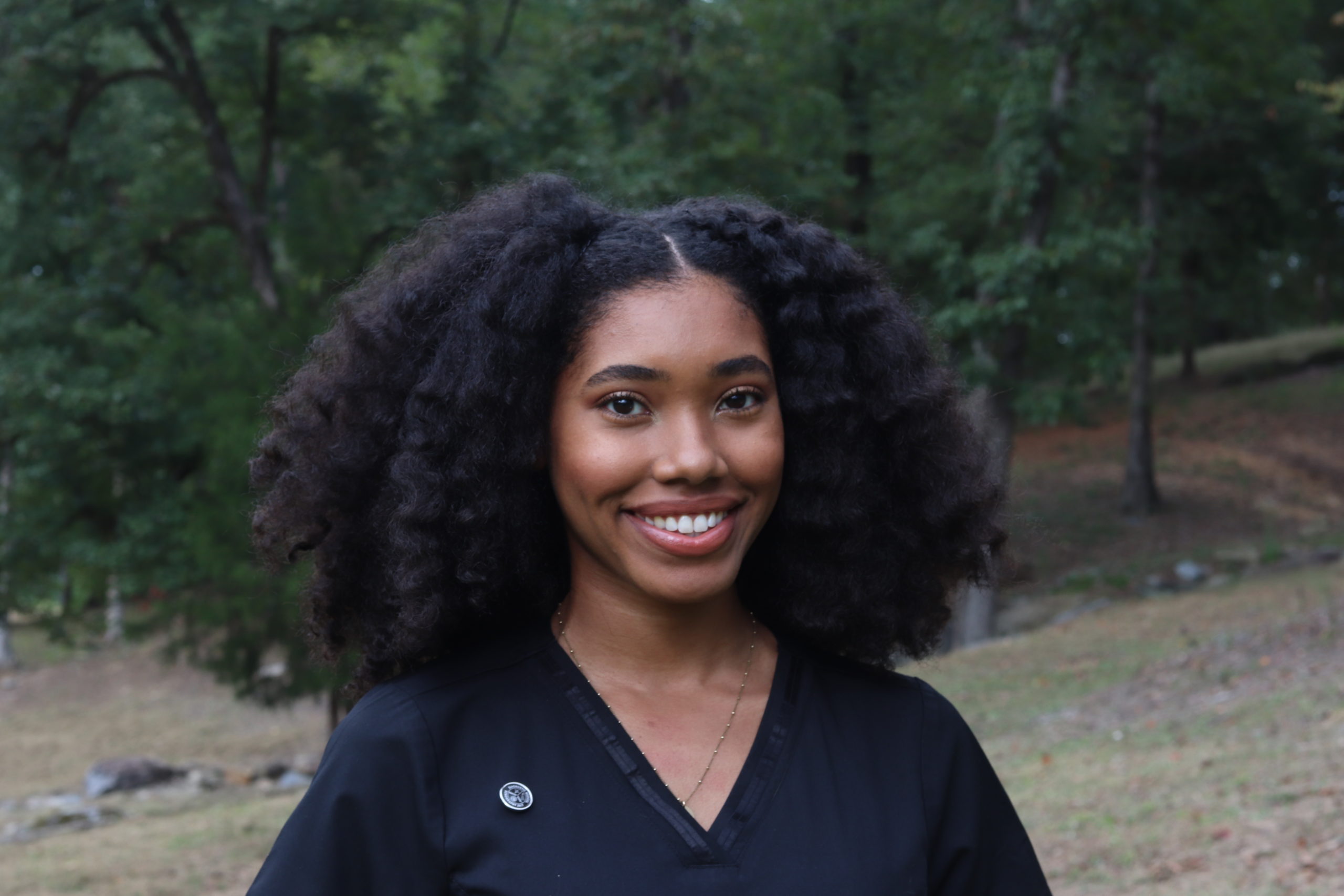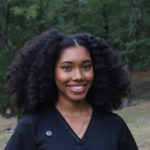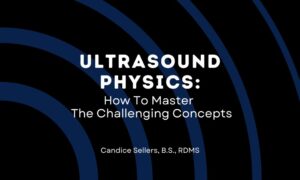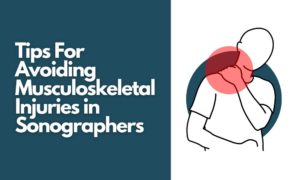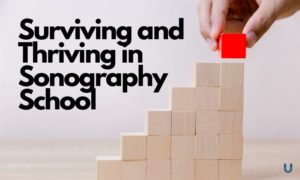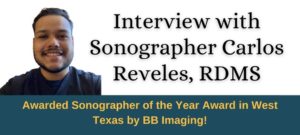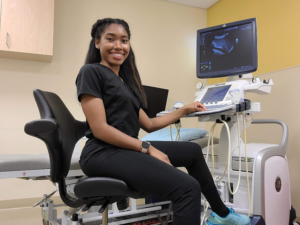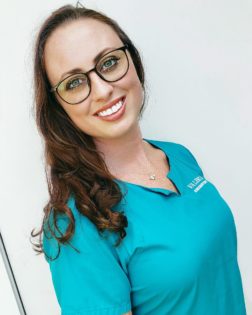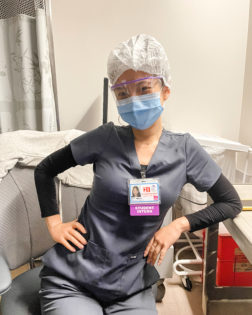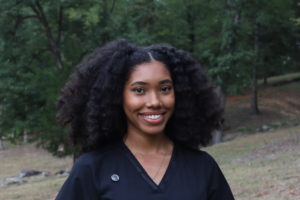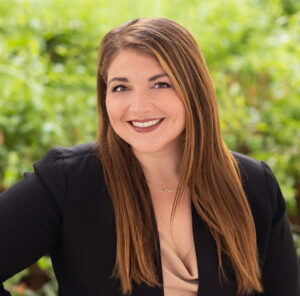The Skilled Sonographer, DruAusten Fields, RDMS (AB, OB/GYN), RVT shares her sonography story!
From Indecision to Decision
Deciding on a lifelong career can be stressful, especially at a young age. During high school was when I began toying with the idea of pursuing a career in the medical field. I knew nursing was not for me (as I had been scarred by the stories my mother shared from her nursing days), but there were so many other options to choose from! I teetered between different careers for a while.
“Flexibility, a variety in job duties and work environments, and good pay were high on my list.”
Finally, I discerned some parameters that I could use to help narrow down my decision. I wanted to pursue a career that did not require several years of schooling. Accumulating debt was a no-go for me. Flexibility, a variety in job duties and work environments, and good pay were high on my list.
Those are a lot of parameters to meet, right? While researching this topic, I stumbled upon diagnostic medical sonography as a career option. Surprisingly, it checked all of the boxes! That is when the ball got rolling.
First Steps
Fortunately, I was able to locate a Diagnostic Medical Sonography program in my area at the Darton College of Health Professions. I visited the school to learn more about the program from the program director. I am glad that my mother accompanied me to ask all the pertinent questions I was too naïve to ask. I found out the graduation rate of the program, application requirements, the prerequisites I lacked, and the application deadline.
Next, I went to work on fulfilling the requirements. My application was prepared and sent off. Several weeks after having a phone interview, I received a letter in the mail from the school… I had been accepted into the program!
Systems for Success in Sonography
I was fortunate to have a stable home environment that allowed me to focus on my schoolwork. I developed a strict study schedule. I would read, highlight, reread, and quiz myself for hours. Being disciplined and organized was key to me making it through the classes that troubled me the most, ultrasound physics and abdominal pathology.
“Being disciplined and organized was key to me making it through the classes that troubled me the most, ultrasound physics and abdominal pathology.”
Consulting with the director of my program regularly to ensure I was on track to graduate also proved beneficial. Knowing what I wanted and why I wanted it helped me to keep pushing forward during those late nights when I was exhausted and considering giving up.
The Real World vs. Textbook
I will preface my clinical experience by saying that I had a top tier program director, Kacey Davis! Before starting clinicals, she instructed the class to take initiative, demonstrate readiness to learn, and to always have our gloves on ready to participate. Applying those tips let the sonographers at clinicals know that I was serious about mastering this new skill.
Nonetheless, I will be the first to say that clinicals were not a piece of cake for me. I struggled…a lot! I soon learned that some sonographers at a few clinical sites did not have my best interests at heart. They were not happy to share their knowledge and experience with an upcoming sonographer.
Once when I was a senior, I asked a clinical instructor if I would be able to earn some proficiencies while I was at that site. Her response was, “No, because I didn’t get to scan when I was a student here.” This demonstrated to me exactly the type of sonographer I did NOT want to be.
These experiences helped me to appreciate even more the sonographers who kindly shared their expertise. Many of my clinical sites afforded me numerous opportunities to practice my skills.
Some would analyze my images, pointing out where I had done well and where I could improve. I especially needed this after reaching a plateau in my second semester of clinicals. It was a challenge to connect what I had been reading about in my textbooks to performing an ultrasound.
The Breakthrough
One sonographer in particular, with whom I spent time one on one, was very frank about my shortfalls in clinicals. On one occasion, while looking over some liver images I had taken, he said, ‘This is NOT good. The depth is wrong. The gain is way too low… This is bad.’ It was not easy to hear my work critiqued, but it was necessary. He instilled in me the mindset needed to supersede mediocrity. He challenged me to reach the potential that he knew I possessed.
“It was not easy to hear my work critiqued, but it was necessary. He instilled in me the mindset needed to supersede mediocrity. He challenged me to reach the potential that he knew I possessed.”
After spending time with sonographers like him, my scanning techniques and image quality skyrocketed! I was able to earn my Abdomen Registry before graduating from the recently accredited program. I am extremely grateful for the patience of all the sonographers who selflessly shared their knowledge.
Those sonographers were instrumental in me developing my basic skillset. However, honing patient care and gaining even more experience and credentials were the next steps in becoming The Skilled Sonographer.
If you’d like to learn more about opportunities in sonography, check out some of our other inspiring interviews:
- Traveling Sonographer – Interview with Dave Felix, traveling sonographer and owner of SonoTemps
- An Interview With Sonographer Dr. Traci Fox EdD, RT(R), RDMS, RVT
- Program Director Tricia Turner (BS, RDMS, RVT) Shares Her Passion for Sonography!

